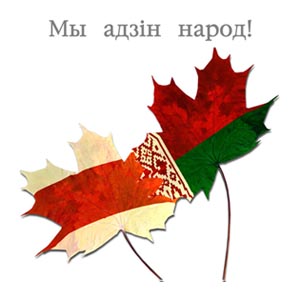Cultured Politics
 International Consortium "EuroBelarus" is guided by the CULTURED POLITICS PROGRAM.
International Consortium "EuroBelarus" is guided by the CULTURED POLITICS PROGRAM.
Cultured Politics is not a policy in the field of culture, it is modern politics, which goes beyond the borders of states and relations between them and replaces power politics of military, economical and ideological dictate.
Cultured Politics is interaction and dialogue of unique cultures. It is dialogue and communication of fundamentally different actors: individuals, states, groups and communities that enter into relations with each other and interact on an equal footing. Dialogue in the Cultured Politics is work with those cultural grounds, which determine intellection, way of life and activity of different actors.
The Cultured Politics’ program realization in Belarus began in 1994 on the ground of the thesis of Uladzimir Matskevich "To think Belarus" and the program text "Belarus: despite the evidence". Since that time it has gone through a number of stages and found place in activities of various actors and different areas (education, politics, media, trade-unions etc.). In 2010 International Consortium "EuroBelarus" adopted Cultured Politics as its program of activities.
Cultured Politics’ program in Belarus is the program of transformation of our country from the Soviet republic into a modern independent European state.
Relevant tracks of the program to date are: DE-SOVIETIZATION — BELARUSIZATION — EUROPEANIZATION.
DE-SOVIETIZATION is getting rid of the outdated Soviet norms and cultural patterns which regulate modern Belarusans’ live and activity on conscious or unconscious level.
From the moment of establishment of independent Belarus old norms and patterns of organizing state governance, political life, economy, way of life and culture haven’t passed through the process of analysis, critics and revaluation. There haven’t been revaluation of history, repentance and recognition of mistakes done in proper way. Without this critics and revaluation at the national level we can’t make reasonable decisions. As a result of it, changes in Belarus are going on spontaneously, decisions are not conscious enough and their implementation is not efficient. Therefore there is a need in analysis, critics and revaluation of all heritage of the Soviet past. This work can’t be done only by specialists or separate groups, de-Sovietization requires wide public discussion and revaluation of past.
BELARUSIZATION is creating grounds and mechanisms for the decisions on issues of the present and future of Belarus are taken in Belarus and the subject of these decisions is the very Belarusian people in full-scale diversity of its representatives.
Today Belarusan citizens lack grounds and necessary mechanisms for realizing themselves as owners of their lives, subjects for making decisions about their own future. We make decisions either translating old Soviet stereotypes and values in non-reflective way or thoughtlessly accepting Western patterns and prototypes. In Belarus there is disability of mechanisms and institutes of all-national dialogue, which can provide consciousness and determination of national interests and priorities, sequencing different strategies and ideas as well as making possible decisions about the way of own development. We should recognize existence of different opinions and understanding of present and past of our country, so we have to learn how to find compromises and build our future together. Establishment and development of such mechanisms of dialogue and coordination is the task of Belarusization.
EUROPEANIZATION is inclusion of Belarus and the Belarusian nation in a pan-European system of intellection and activities.
We, Belarusans, are one of the European nations. All Europeans are different but all interact and communicate as equal. European space is determined not geographically and not politically, but by the space of dialogue of different cultures. European cultural space is place where the ideas of freedom, rights, democracy, intellect and Enlightenment have been formulated and still in development and realization. Return to this space means inclusion of Belarus into solving all-European problems and objectives as equal partner. It is possible through organization and development of joint activity with European countries and people — political, economic, intellectual, ecological etc. The major task here is including of Belarus and its separate actors in various political, economic and other relations — projects, programs, unions etc. — to determine jointly our common European future.
Reaching goals in these three directions, obviously, has consecutive nature. It is impossible to do Europeanization without “cleaning” culture from Soviet patterns and ideals, without recognizing yourself as Belarusian. On the other hand, this stage character is relevant to intensity of actions but not to their beginning. Only via interaction with other Europeans on equal footing we can better realize and solve the problems of de-Sovietization and Belarusization.
The ground for the activities along these tracks is the guideline "WE ARE ONE PEOPLE".
We are one people, so it is us and us only who can decide what will Belarus look like tomorrow and the day after tomorrow. The fate of Belarus is our business and it is in the palm of our hands. We cannot impose our opinions on each other, neither the majority nor the minority. We are to seek compromises and negotiate positions. Only after having accepted the guideline "We are one people", we can move on towards the dialogue and agreement.
On the basis of this guideline and following its objectives, International Consortium "EuroBelarus" builds its activity both in Belarus and in Europe.
Within the frames of the Cultured Politics’ program International Consortium "EuroBelarus" concentrates its efforts at:
-
Development of Civil Society in Belarus, its ability to both interaction and communication internally and shaping coordinated position on the most important problems of development of the country for building dialogue with political, power and other stakeholders;
-
Development of interaction with various European partners (civil society, politicians, government officials), first of all, on the issues of relations between Belarus and other European states.






















